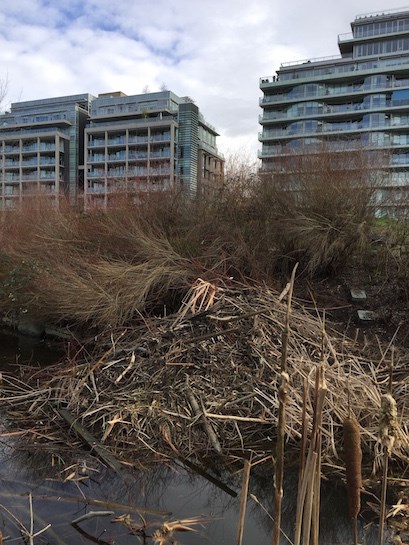Â鶹´«Ã½Ó³»is often lauded for its natural beauty, but it could also become known for its vibrant natural areas as well. The Â鶹´«Ã½Ó³»Park Board unanimously passed its new last week. It hopes to encourage more action to make our natural areas better homes for the , , , , and other wild creatures we love to see in the City.
 A pair of beavers have settled in to the Olympic Village neighbourhood. The Park Board has no plans to remove them.
A pair of beavers have settled in to the Olympic Village neighbourhood. The Park Board has no plans to remove them.
How does the Strategy propose to do this? There are 10 priority actions identified. These include improving the quality of habitats across the City, and creating more of them. Removing harmful invasive species like Himalayan blackberry, English Ivy and Japanese Knotweed is also a priority. The Strategy also hopes to inspire each of us to create a patch of habitat on the properties we rent or own - for example, sow a pollinator meadow, dig a rain garden, or plant berry shrubs for birds.
The City also recognizes that some newly-created wild(ish) places, like green roofs and constructed waterways, can also help the City’s wildlife. For example, is a stream that is fed by the City’s stormwater. It provides habitat and also cleans the water before it enters the Burrard Inlet. Once approved, a new will be another important piece of bringing back some of the nature that we’ve lost over the years.
Through actions like these the City is hoping to restore 25 hectares (or 25 football fields) of natural areas by 2020. And by making our natural areas more livable for the more-than-human inhabitants of our city, I believe we make our city more livable for ourselves as well.


